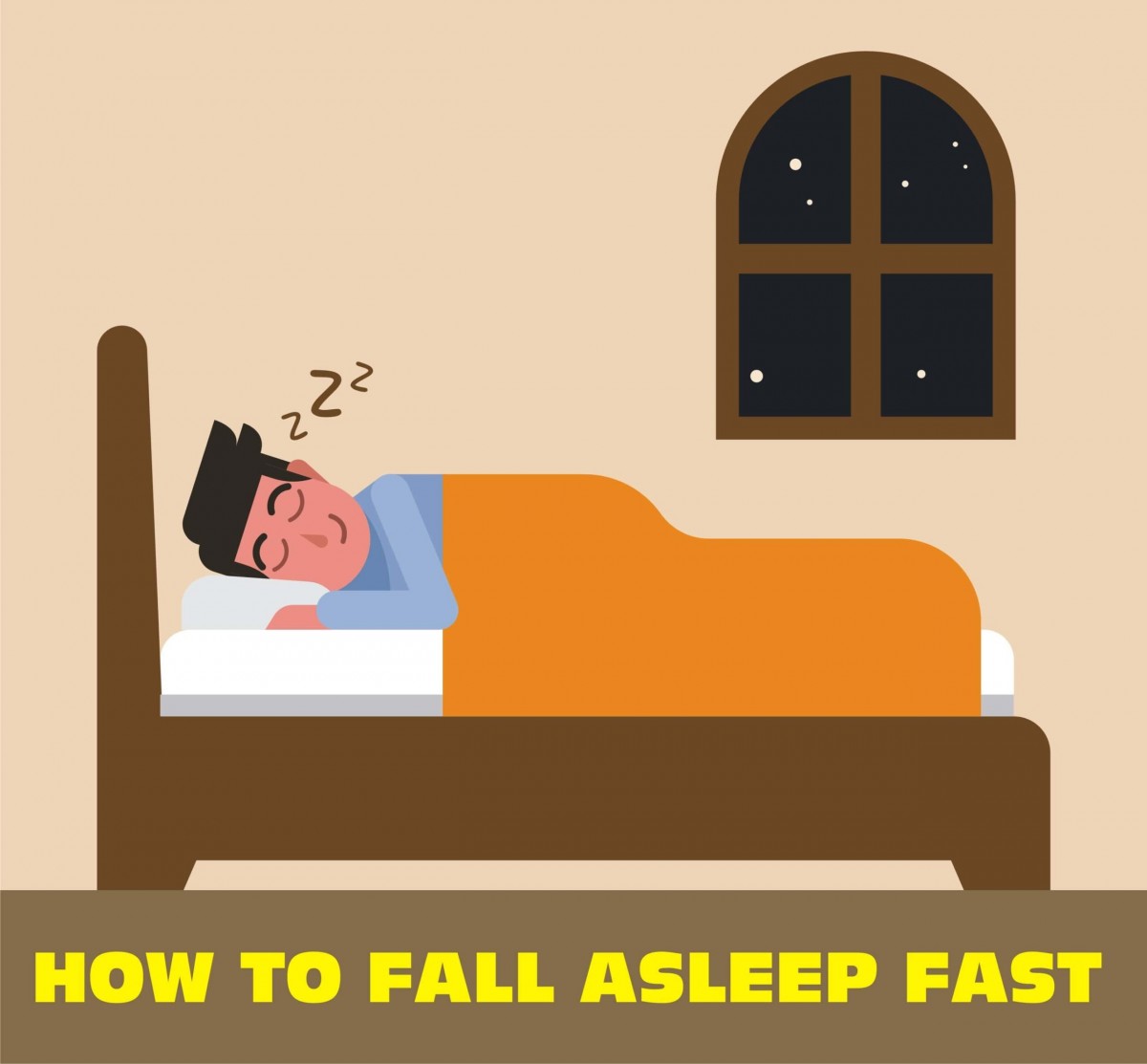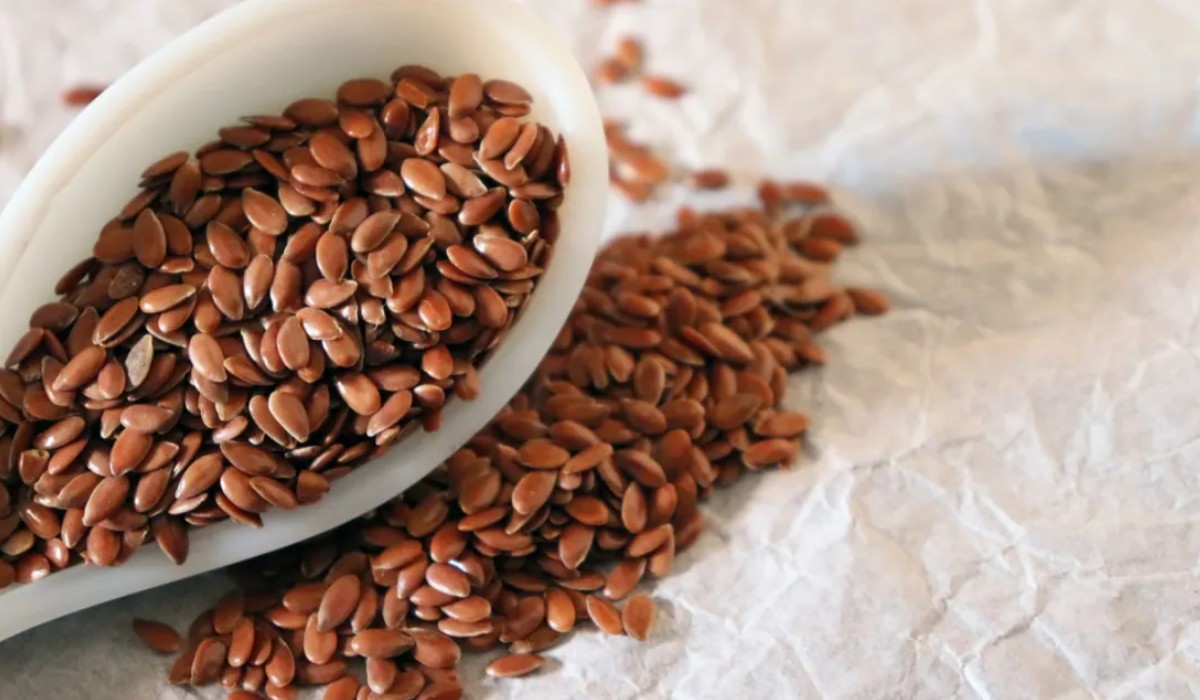Having trouble falling and staying asleep is not only frustrating, but it can also affect your mental and physical health.
Let’s discuss some techniques that can help you fall asleep quickly, while sleeping much better and having more energy the next day.
1. Visualize things that make you happy

Instead of lying in bed worrying and thinking about stressful things, visualize a place that makes you feel happy and calm. This technique helped them occupy their mind with good thoughts instead of engaging with worries and concerns during the pre-sleep time. Picturing and concentrating on an environment that makes you feel peaceful and relaxed can take your mind away from the thoughts that keep you up at night.
2. Focus on trying to stay awake
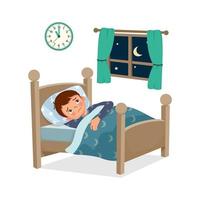
It’s believed that if you go to bed and try to force yourself to fall asleep, your chances of succeeding drop dramatically. It’s based on the idea that the stress and anxiety produced by forcing yourself to fall asleep can prevent you from relaxing and snoozing.
3. Read and fall asleep

Reading could be a good activity to help you wind down before bed. At least for kids, it seems that bedtime reading may promote longer sleep. Electronic books emit blue light, which reduces melatonin secretion. Lowered melatonin levels make it harder for you to fall asleep and cause you to feel tired the next day. Therefore, it’s recommended that you read from a physical book in order to relax and improve your sleep.
4. Adjust your sleep position
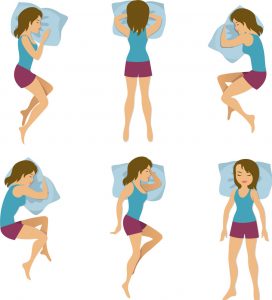
Good quality sleep may depend on your body position during the night.
There are three main sleeping positions:
- back
- stomach
- side
Traditionally, it was believed that back sleepers had a better quality of sleep.
5. Turn off all electronics

Using electronic devices late at night is terrible for sleep. This is partly because electronic devices emit blue light, which has been found to suppress melatonin. Using these devices also keeps your mind in an active and engaged state. It’s recommended that you disconnect all electronics and put away computers and cell phones so you can ensure a quiet place, free of distractions. You’ll be able to fall asleep much faster if you practice good sleep hygiene.
6. Exercise during the day

Physical activity is often considered beneficial to healthy sleep. Exercise can increase the duration and quality of sleep by boosting the production of serotonin in the brain and decreasing levels of cortisol, the stress hormone.
Get moving with activities like:
- running
- hiking
- cycling
7. Avoid naps during the day
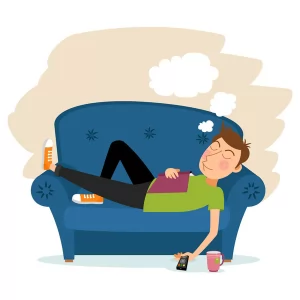
Due to poor sleep at night, people with insomnia tend to be sleepy during the day, which often leads to daytime napping. While naps of short duration have been linked to improvements in alertness and well-being, there are mixed opinions about the effects of napping on nighttime sleep. To find out if naps are affecting your sleep, try either eliminating naps altogether or limiting yourself to a short nap (30 minutes or less) early in the day.
8. Practice yoga, meditation and mindfulness
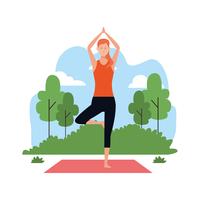
Yoga, meditation, and mindfulness are tools to calm the mind and relax the body. Moreover, they’ve all been shown to improve sleep. Yoga encourages the practice of breathing patterns and body movements that release stress and tension accumulated in your body. Meditation can enhance melatonin levels and assist the brain in achieving a specific state where sleep is easily achieved. Lastly, mindfulness may help you maintain focus on the present, worry less while falling asleep, and even function better during the day. Practicing one or all of these techniques can help you get a good night’s rest and wake up reenergized.
9. Get on a schedule

Once your body adjusts to this schedule, it’ll be easier to fall asleep and wake up around the same time every day. It’s also important to get 7 to 9 hours of sleep each night. This has been shown to be the optimal sleep duration for adults. Lastly, give yourself 30–45 minutes to wind down in the evening before getting in bed. This allows your body and mind to relax and prepare for sleep.
10. Use the 4-7-8 breathing method
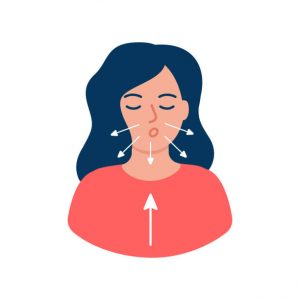
Here are the steps:
- First, place the tip of your tongue behind your upper front teeth.
- Exhale completely through your mouth and make a “whoosh” sound.
- Close your mouth, and inhale through your nose while mentally counting to 4.
- Hold your breath, and mentally count to 7.
- Open your mouth and exhale completely, making a “whoosh” sound and mentally counting to 8.
- Repeat this cycle at least three more times.
This technique can relax you and help you fall asleep quickly.







